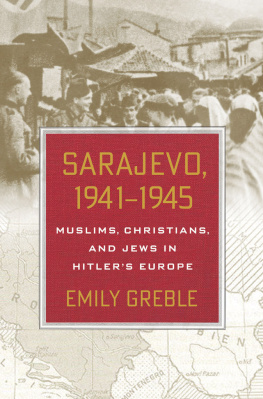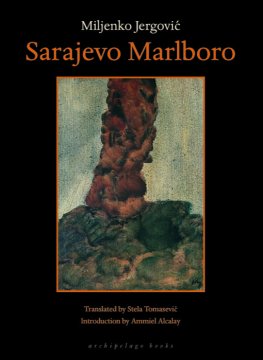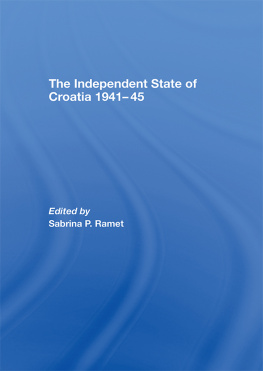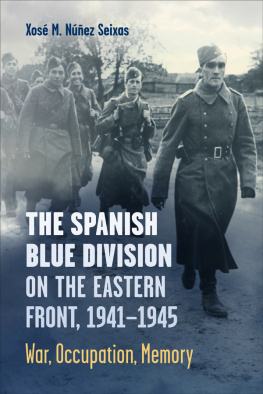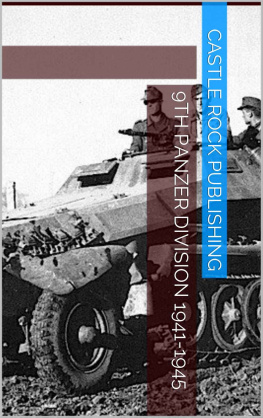ACKNOWLEDGMENTS
I owe thanks foremost to three extraordinary scholars and mentors, Norman Naimark, James Sheehan, and Robert Donia, whose guidance and support over the past decade have helped me excavate Sarajevos stories from the archives and turn them into this narrative. The support and confidence of Norman Naimark has been vital at every step. His assiduous mentoring gave me clarity, perspective, and confidence to see this project through. James Sheehan challenged me to expand my intellectual horizons and find the right voice to capture my ideas. Recognizing my love of Sarajevos stories, he also introduced me to Mack Walkers German Home Towns , a book that deeply shaped the kind of scholarship I wanted to pursue. Robert Donia read the manuscript for this book far more times than he bargained for, each time sharing more of his seemingly bottomless insight into Balkan history. His guidance through the complex worlds of Bosnian archives and historical polemics has left an inestimable imprint on this work.
Among the many other scholars to whom I am indebted is Husnija Kamberovi, director of the Institute of History in Sarajevo, whose sponsorship of various forums helped me to develop my ideas, and whose historical objectivity and integrity has been inspiring. Gilbert McArthurs early encouragement was instrumental. Ivo Banac offered invaluable advice on the pursuit of Yugoslav history, always provoking rigor in my analysis. Istvn Dek sparked my interest in the dark and complicated history of Hitlers Europe; he and Gloria Dek have been a wealth of academic and personal support. Aron Rodrigue encouraged me to think of this book as a part of post-Ottoman studies. Katherine Jolluck taught me the value of seeking out womens stories in crafting the complexities of everyday life.
The keen eye and insightful critiques of my reading circleMalgorzata Fidelis, Irina Gigova, Katherine Lebow, and Andrea Orzoffenriched this book and strengthened its arguments. Ravit Reichmans perceptive readings of the introduction and conclusion pushed me to make more explicit theoretical and conceptual ideas; her clever ability to distill complex concepts into a few words left a particular imprint on the headings in the pages to follow. Years of friendly debate about genocide, nationalism, and Bosnian history with Paul B. Miller, who dissected parts of this work, was instrumental in its development. James M. Ward astutely criticized the earliest drafts of these chapters, becoming the rare reader who could state bluntly when a chapter was boring. Chinnie Dings laborious clarification of my prose brought out its subtleties. Rebecca Reich has proven herself time and again a loyal friend and sounding board, coming through in every emergencyacademic, personal, and melodramatic.
As I finished this book, I was lucky to come into a wonderful history department at The City College of New York. I am especially grateful to Cliff Rosenberg, my chair, who read the manuscript and helped me clarify some of its arguments. Beth Baron, Craig Daigle, Greg Downs, Danian Hu, Andreas Killen, Anne Kornhauser, Adrienne Petty, Darren Staloff, and Judith Stein have given critiques of parts of this work; they and Susan Besse, Barbara Brooks, and Barbara Naddeo have offered essential assistance as I navigated the vagaries of a new institution amid pressing manuscript deadlines. The financial and institutional support provided by deans Fred Reynolds and Geraldine Murphy was invaluable. Finally, I offer a special thanks to my students, especially those in my courses on comparative empire and minorities in Europe, for broadening my perspective on concepts of empire and identity.
This book would have been impossible to research and write without the generous financial support from Fulbright-Hays, IREX-IARO, the American Council of Learned Societies, the Mellon Foundation, and both the Center for Russian, East European, and Eurasian Studies and the Department of History at Stanford University. A two-week summer fellowship at the U.S. Holocaust Memorial Museum helped me hone my ideas on wartime confessional politics; Vicki Barnett and Suzanne Brown-Fleming were especially supportive. I am grateful to Steven Miller and Robert Rotberg at the Belfer Center for Science and International Affairs for giving me a home and a support network for two years of writing, and to Tony Judt, who provided a fellowship at the Remarque Institute at New York University, during which I completed this book.
Historians of Bosnia learn quickly that archivists do not simply act as gatekeepers, but as research advisers and advocates of objectivity. This project would have been impossible to complete without the assistance of the wonderful people who work at the archives and libraries in Sarajevo and Zagreb. While there are far too many individuals to mention by name, I want to extend special thanks to Muhiba Kaljenac and Alma Leka at the Historical Museum of Bosnia and Herzegovina; Milena Gai, Huso Hodi, and the late Mustafa Dervievi at the Historical Archive of Sarajevo; and Sandra Bileti, Amira Hujdur, Mina Kujovi, and aban Zahirovi at the State Archives of Bosnia and Herzegovina. I am especially indebted to Sejdalija Gui, director of the Historical Archives of Sarajevo, who welcomed me into the archive community, supporting my research unconditionally at every step.
The professionalism and commitment of Cornell University Press has made this process unequivocally positive. John Ackerman gave his support to this book with enthusiasm and graciousness. Jamie Fullers smooth copy editing and Susan Specters production expertise proved instrumental in making the final hours productive and enjoyable.
Portions of chapters 3 and 4 are reprinted from When Croatia Needed Serbs: Nationalism and Genocide in Sarajevo (19411942), Slavic Review 68, no. 1 (Spring 2009).
This book would not have found itself without the guidance, support, and encouragement of friends in the Balkans and the United States. In Sarajevo, my dear friend Milena Gai and her familyDule, Marina, Saa, Irina, Tea, and Leamade sure I always had a home away from home. They spent countless evenings helping me decipher nearly illegible, faded Cyrillic handwriting and talking through my historical interpretations, while stuffing me full with sarme and princez krofne . Irfana Softi and Indira Telegrafi ensured that I was immersed in every facet of Bosnian cultural life, from May Day in Maglaj to Thursdays at Slogo. Asim Guhdija challenged me to think about Bosnia more provocatively. My two talented research assistants, Aleksandar Gai and eljka Poloni, were my eyes and ears in Sarajevo when I could not be there. In New York and Stanford, Anita kara and Sanja Medi patiently taught me to speak Croatian. In Split, the Bali and Singolo families were an incredible support system as I learned the language and customs of the region. The late Ante Bali cared deeply about history, encouraging my work even when my narratives challenged his truth. Through Vlatko Bali I fell in love with the Balkans; his support made this book possible in many ways.
I am also grateful for the conversation and friendship of Julia Cohen, Liz Cohen, Erin Dillon, Kevin Cusick Dix, Scott Ebner, Jake Gamage, Christopher Johnson, Jesse and Lena Kauffman, Tiffany Mercer, Elise Molinelli, Karen Robbins, Sharron Silvers, Ashley Simone, Tammy Smith, and Ted Weesner. Sandy Silvermans guidance helped me to keep track of the big picture. My spirited extended familyDerek Stensby, the ODonnells, the Knox/Koestenblatts, and the Worsnicksensured that I left the library from time to time.
My family deserves a special note of recognition for their selfless support. Though we did not know it at the time, my father, Thomas Greble, spent his final hours talking with me about the title of this project. He imparted an intellectual curiosity and passion for storytelling, without which I would not have become a historian. My mother, Diane Greble, has been there constantly, even when this meant avoiding land mines in Herzegovina or carrying boxes of documents through the snowy streets of Sarajevo when the frigid wind had stopped every tram in the city. She nourished me with steadfast support and love, not only encouraging, but enabling me to pursue my dreams. Through my brother, Matthew Greble, I learned how to empathize without fully understanding. Emily Weltman, kindred spirit and lifelong friend, has always made life more manageable. Matthew Worsnicks confidence in me and patient support transformed the anxious final stages of writing a book into a delightful experience. He has given me countless reasons to relish the interstices as much as the highlights; for this I am eternally grateful.
Next page
